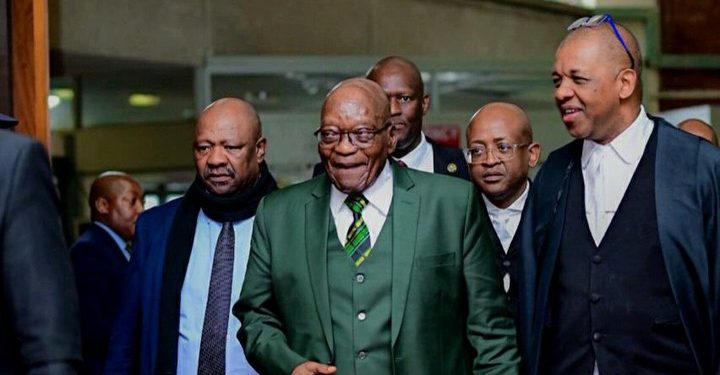In a recent public address, South African Federation of Trade Unions (SAFTU) General Secretary Zwelinzima Vavi discussed the findings of the Zondo Commission, which investigated alleged state capture involving former President Jacob Zuma. Vavi’s message highlighted the importance of independent verification and encouraged South Africans to leverage accessible technology to fact-check and stay informed.
The Zondo Commission, led by Deputy Chief Justice Raymond Zondo, revealed that during Zuma’s presidency (2009-2018), private individuals, particularly the Gupta family, reportedly wielded undue influence over government decisions and appointments. Through these connections, the Guptas allegedly obtained favorable government contracts and strategic roles in state-owned enterprises, including Eskom, Transnet, and South African Airways.
The commission’s findings delved further, uncovering allegations that some key ministers may have been appointed with Gupta backing due to their alignment with the family’s business interests. The report questioned the integrity and transparency of Zuma’s administration, bringing South Africa’s power dynamics into the public eye.
It’s not true that the Zondo Commission never implicated former President Jacob Zuma in ‘wrongdoing’. Ask AI or Google; the information is in your smartphone. Don’t be misled; you have information in your hand!
AI
“Yes, Jacob Zuma is implicated in the findings of the Zondo… pic.twitter.com/6dVecMJJaU— Zwelinzima Vavi (@Zwelinzima1) October 29, 2024
Based on its investigation, the Zondo Commission issued several recommendations, specifically urging criminal prosecution in cases where evidence of corruption or power abuse was sufficient. The report also called for a thorough examination of Zuma’s financial ties to the Gupta family and proposed asset recovery initiatives to reclaim public funds potentially lost due to corrupt practices.
Floyd Shivambu, the MK Party’s national organizer, responded to Vavi’s remarks with words of support, emphasizing the complex and sensitive nature of accountability and public trust. His reaction underscores the political nuances surrounding the commission’s findings.
As South Africa confronts the long-term repercussions of state capture, Vavi’s comments stress the need for active public engagement. By urging citizens to consult reliable information sources, he champions a movement toward ethical governance and informed decision-making. The country’s ongoing scrutiny of Zuma’s legal consequences reflects a broader commitment to combatting corruption and fostering transparency in South Africa’s governance.






















